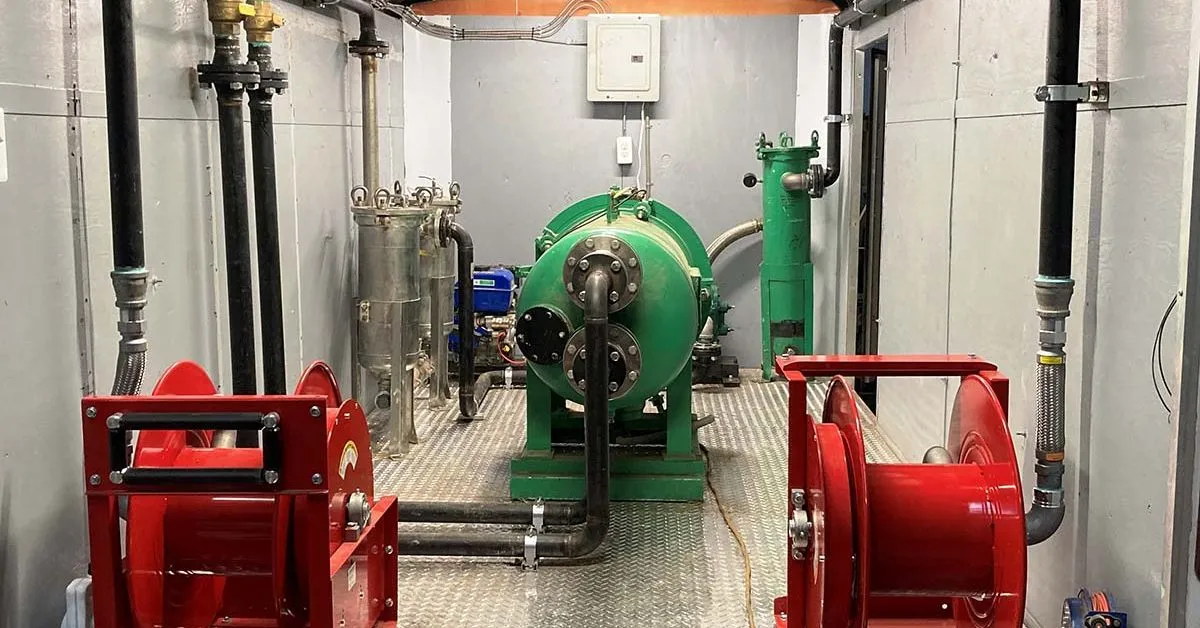Fuel polishing is a critical service for industries that rely on stored fuel for their operations. Over time, fuel quality degrades due to various contaminants, which can lead to severe issues such as engine failure, generator downtime, and equipment damage. This is where fuel polishing services come in, ensuring that stored fuel remains clean, stable, and reliable for use. Companies like hazawaywaste.co.uk offer fuel polishing services designed to protect your fuel supply from degradation and contamination, ensuring it remains viable for longer periods.
Understanding Fuel Contamination
Fuel contamination is a widespread problem, particularly in industries that store fuel for extended periods. Diesel, in particular, is susceptible to contamination, which can occur from a variety of sources. These include water intrusion, microbial growth, dirt, and rust. Water, often entering through condensation in storage tanks, is one of the most common contaminants. It encourages the growth of bacteria and fungi that feed on hydrocarbons, creating a sludge that settles at the bottom of fuel tanks. Over time, this contamination leads to clogged fuel filters, corroded tanks, and poor engine performance. If left unchecked, it can cause significant damage to machinery, costing businesses time and money. For industries that rely on backup generators or heavy equipment, this can be catastrophic, resulting in downtime or failure when power or machinery is most needed.
What is Fuel Polishing?
Fuel polishing is a process designed to remove contaminants from stored fuel, restoring its quality and performance. Unlike simple fuel filtration, which only removes large particles, fuel polishing is a comprehensive cleaning process that targets water, microbial growth, and fine particles, leaving the fuel as clean as possible. It is an essential maintenance service for industries that store fuel in large quantities, including marine, transport, construction, and backup power industries. The fuel polishing process typically begins with an assessment of the fuel’s condition. Samples are taken to determine the level of contamination, which helps decide the extent of cleaning required. The fuel is then passed through a series of filters, separators, and centrifuges, each designed to remove specific contaminants. Water is removed through water separators, while filters trap solid particles such as dirt and rust. Centrifuges and coalescers help remove the smaller particles and emulsified water that other filters may miss.
The Benefits of Fuel Polishing Services
Fuel polishing offers numerous benefits for industries that rely on stored fuel. One of the most significant advantages is that it helps extend the life of the fuel. Stored fuel can degrade over time, but with regular polishing, its quality can be maintained, reducing the need for frequent fuel replacement. This not only saves costs but also reduces the environmental impact of fuel disposal. Another key benefit is improved engine performance. Clean fuel burns more efficiently, resulting in better fuel economy and less strain on engines. For backup generators and heavy equipment, this is particularly important as it ensures that they are ready to operate at full capacity when needed. Fuel polishing also helps to prevent costly breakdowns by keeping fuel systems clean and free of contaminants.
Additionally, fuel polishing is a cost-effective solution compared to the alternative of replacing contaminated fuel. The cost of fuel replacement can be substantial, particularly for large-scale storage facilities, and there is also the issue of disposing of the contaminated fuel in an environmentally responsible manner. Polishing allows businesses to save money and avoid the logistical headaches of fuel disposal and replacement.
Who Needs Fuel Polishing Services?
Fuel polishing services are essential for any industry that stores fuel for an extended period. This includes a wide range of sectors, from maritime and transportation to construction and power generation. Marine vessels, for instance, often store large amounts of diesel fuel, which can become contaminated by water and microbes during long periods of storage. Regular fuel polishing ensures that vessels operate smoothly and efficiently, reducing the risk of engine failure during critical operations. Similarly, businesses that rely on backup power systems, such as hospitals, data centers, and manufacturing facilities, cannot afford to have fuel issues when they need power the most. Fuel polishing ensures that their generators are always ready to perform, providing peace of mind during power outages. Construction companies that use heavy machinery also benefit from fuel polishing services. Equipment such as bulldozers, cranes, and excavators often run on diesel, and contaminated fuel can cause significant damage to these machines, leading to costly repairs and downtime. By maintaining clean fuel, construction businesses can avoid such issues and keep their operations running smoothly.
The Process of Fuel Polishing
The fuel polishing process begins with a thorough inspection of the fuel storage system. Technicians check for signs of contamination, including water, sludge, and microbial growth. Once the contamination level is assessed, the actual polishing process can begin. The fuel is circulated through a series of filtration systems designed to remove contaminants. Water separators, coalescers, and filters are used to remove water and solid particles from the fuel, while centrifuges may be employed to remove smaller particles and emulsified water. In addition to cleaning the fuel itself, fuel polishing services often include cleaning the storage tank. Sludge and microbial growth can accumulate at the bottom of tanks, leading to recurring contamination issues. By cleaning the tank and the fuel simultaneously, businesses can ensure that their fuel remains clean for longer periods.
Final Thoughts
Fuel polishing services are an essential maintenance practice for industries that rely on stored fuel. Over time, fuel can become contaminated by water, microbes, and particles, leading to engine issues, generator failure, and costly repairs. By utilizing fuel polishing services from companies like *hazawaywaste.co.uk*, businesses can ensure that their fuel remains clean and ready for use, extending its life, improving engine performance, and reducing maintenance costs. Fuel polishing is a cost-effective solution that protects your fuel investment and ensures operational reliability when it matters most.

